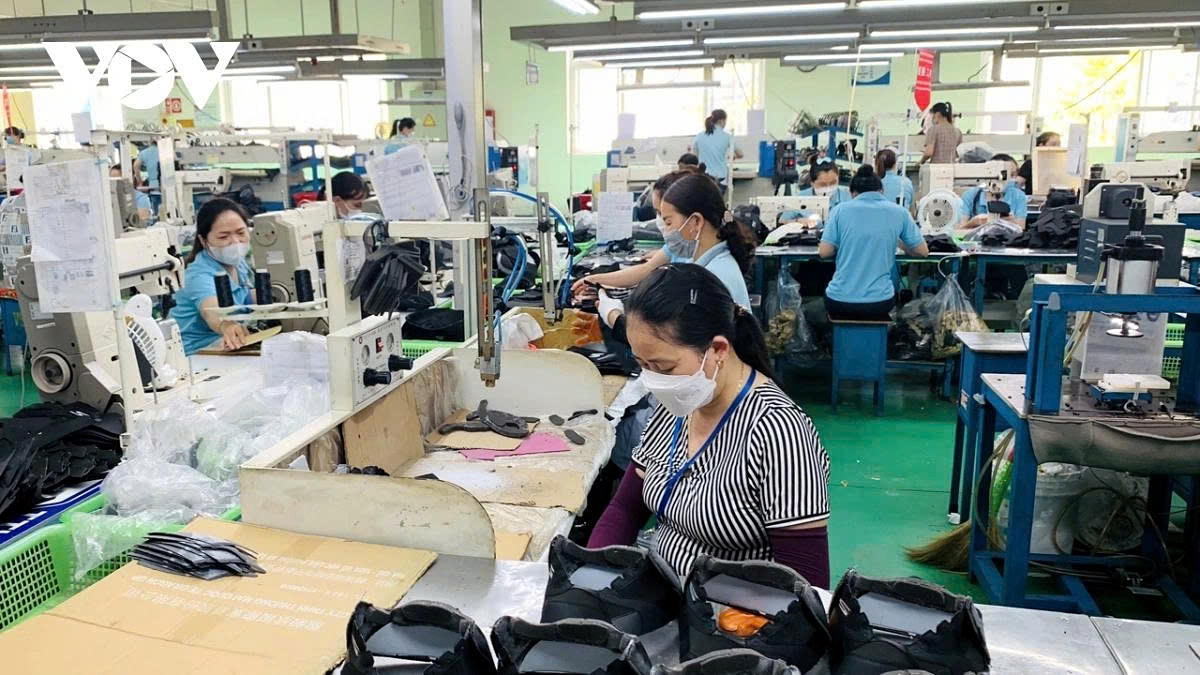Institutional reform spurs business confidence and growth in the long term
VOV.VN - Amid ongoing global economic uncertainties, Vietnam’s GDP growth reached 7.52% in the first half of 2025, clearly displaying the effectiveness of the ongoing institutional reform efforts vigorously promoted by the Government.

According to the National Statistics Office, 80.8% of businesses expect their production and business activities in quarter III this year to remain stable or improve, reflecting growing confidence in the investment and business environment.
Le Xuan Nga, CEO of BHS Property, notes that investment-related legal procedures are becoming increasingly streamlined, helping businesses shorten project implementation time.
“Businesses are hopeful and confident that investment-related legal procedures will be further streamlined and expedited, enabling us to handle investment procedures more efficiently, and supporting a quicker and more convenient access to and completion of project approvals,” he says.
Meanwhile, Bui Tien Dung, corporate client director at Vconnex, states that the Government's swift policy responses are driving innovation across the business community, especially among technology firms and SMEs.
“The Government is acting very swiftly, so we, especially technology enterprises and small and medium-sized enterprises in general, must also adapt to keep pace with the changing times,” confides Dung. “We are determined to concentrate our resources on accelerating business operations, as we firmly believe that every enterprise serves as a fundamental pillar of the national economy.”
A key highlight in the first six months of the year was the removal of numerous unnecessary business conditions and the simplification of administrative procedures, particularly in the real estate, industrial production, banking, and finance sectors. The time required for construction permits and land allocation or leasing has been reduced by up to 30%.
The State Bank has proactively managed monetary policy, coordinating with the Ministry of Finance to resolve credit bottlenecks and promote capital flow for production and business.

According to Dr. Nguyen Quoc Viet at University of Economics under Vietnam National University, Hanoi, these reforms not only reduce costs but also restore business confidence, which in turn translates into investment, production expansion, and job creation - key drivers of long-term growth.
Notably, the Government has synchronously implemented major policies such as reducing compliance costs for administrative procedures, promoting digitalisation, eliminating the “ask–give” mechanism, and supporting enterprises in accessing credit and resolving investment-related obstacles.
As of the end of June 2025, the Government and the Prime Minister had issued a total of 170 Decrees, 231 Resolutions, 1,505 Decisions, and 21 Directives. In June alone, there were 28 Decrees on decentralisation and delegation of authority, and 27 directives on the two-tier governmental system.
Shantanu Chakraborty, Asian Development Bank (ADB) country director in Vietnam, remarks institutional and administrative reforms are enhancing the effectiveness of public service delivery and supporting private sector development, thus laying the foundation for sustainable growth.
International organisations such as the World Bank, International Monetary Fund, and various business associations have praised Vietnam’s pace of institutional reform, particularly in translating policies into concrete actions from central to local levels.
“Institutional reform is not just a supporting tool—it is the 'operating system' for development. To achieve double-digit growth, we must improve implementation quality, innovate state governance, reduce costs, and enhance operational efficiency for businesses.” emphasises Dau Anh Tuan, deputy secretary-general of the Vietnam Chamber of Commerce and Industry.





